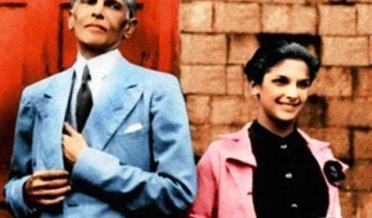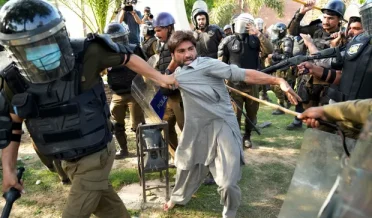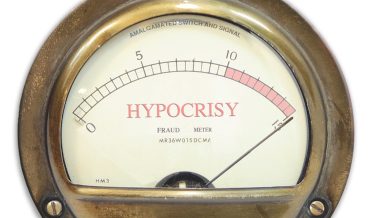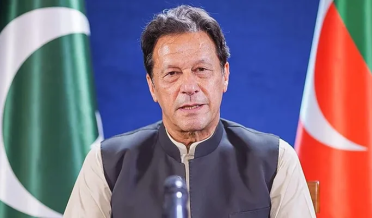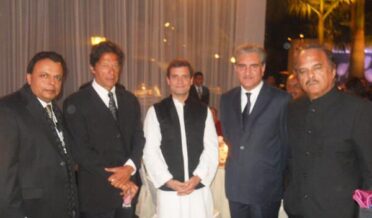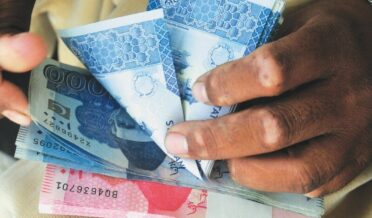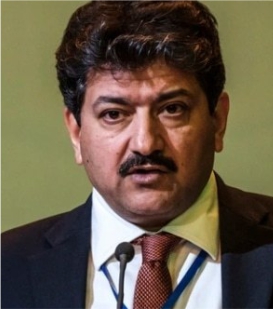
Hamid Mir
Is the IMF pushing Pakistan to join the China-Russia alliance?
Famous award-winning Indian journalist Rahul Kanwal recently invited me on his TV show and asked a very difficult question: “Is Pakistan racing down a road that leads to default?” He also referred to the statement of our Defence Minister Khawaja Asif who confessed that Pakistan has already defaulted. I am not an expert on economics, but I took the cover of Finance Minister Ishaq Dar who told me about many times on my TV show that Pakistan will not default. I could not resist sharing my opinion with Rahul Kanwal and accepted that Pakistan may not default very soon but the lives of common Pakistanis are getting worse day by day due to inflation and price hike.
I was amazed to read a statement from famous Indian lyricist Javed Akhtar that he visited Pakistan recently and never saw poverty there. Javed Akhtar recently participated in the Faiz Literary Festival in Lahore. I also met him at the same festival a few years back. I have a lot of respect for Javed Sahib. I can only request him that next time if he visits Pakistan again, he should give me just 30 minutes and I will take him to places in Lahore not different from the slums of Delhi.
Poverty is a common issue in India and Pakistan. Maybe Pakistanis are facing more price hikes than Indians these days, but there is a difference. Many Pakistanis and especially Lahoris are famous for their fine dining and smiling. According to the 2022 world ranking of happiness, Pakistanis are happier than Indians. Last year, I saw these smiling faces even in the flood-affected areas of Sind and Balochistan. It is difficult to find poverty behind smiling faces, but now these smiles are vanishing due to inflation. Wherever I go, Pakistanis ask me, “Is the country going to default?”
This question is being debated inside and outside Pakistan since the seventh nuclear power and fifth most populous country in the world entered the danger zone last year after the default of Sri Lanka. Pakistan is facing a multidimensional economic crisis due to bad governance, political instability, the war in Ukraine, smuggling of wheat and dollars to Afghanistan and devastating floods. In recent months, diplomatic staff of Pakistan in many countries did not receive salaries on time and the government started a process of selling properties in Washington DC to raise funds.
Who pushed Pakistan to the verge of sovereign default? Former Prime Minister Imran Khan is blaming the ‘imported government’ of Shehbaz Sharif for creating the default risk. Khan claims that Sharif’s government is sponsored by the US, and at the same time, he says that Pakistan can avoid default only by entering the IMF programme.
Sharif’s government negotiated a deal with Russia recently for oil import at discounted rates to ease economic pains. This deal blasted the narrative of Khan that Shehbaz Sharif came to power with the blessing of the US. Pakistan tried its best to strike a balance between the US and Russia but the US is not happy with the oil deal between Pakistan and Russia. Many people in the Pakistani government think that the US is using the IMF to blackmail Pakistan. Imran Khan is claiming that early elections can save Pakistan from default, but he can’t deny the fact that default risk surfaced for the first time when Khan was ruling Pakistan. Can Imran Khan fix the Pakistani economy if he comes into power again?
Khan changed four finance ministers and six finance secretaries in his 45-month government. His government was on the top amongst the last four administrations with the highest external borrowing of around $52 billion in three years and eight months. Nawaz Sharif’s PML-N government was in second place with $49.761 billion in five years. Zardari’s government was in third place for borrowing $25 billion in five years and General Pervez Musharraf borrowed $17.503 billion in nine years.
Khan promised to make a new Pakistan before the 2018 election but he miserably failed. Khan claimed that he would rather commit suicide before approaching the IMF. He not only made a deal with the IMF in 2019 but also created problems for the country by violating the same deal. Khan announced some subsidies as a political gimmick which ultimately turned into economic landmines for the new government. Khan refused to accept his fall from power last year and pushed Pakistan to the brink.
Pakistan was already facing inflation due to the impact of the Ukraine war and then faced a climate disaster which destroyed its agriculture and infrastructure. The Pakistani economy suffered losses of more than $30 billion due to last year’s floods. Pakistan is the eighth largest producer of wheat in the world, but now this country is facing a wheat shortage. The price of roti jumped due to the smuggling of flour to Afghanistan.
Pakistan secured pledges of more than $10 billion recently from many donors at the Geneva conference for the reconstruction in flood-affected areas. Pakistan needs at least $20 billion more for the flood-affected areas. It is difficult for Pakistan to service debt of $274 billion, which is nearly 79 per cent of the GDP. Pakistan needs to repay more than $8 billion to creditors by March 2023 while foreign exchange reserves are less than $4 billion.
In this difficult time, Pakistan received a rollover of $2 billion and additional support of $1 billion from the UAE. Saudi Arabia also funded $1 billion worth of oil imports on deferred payments with assurances of more help in future. On the other hand, the IMF quietly asked these two Arab countries to hold their money.
The IMF forced Pakistan to impose more taxes through a mini-budget last month. This mini budget was like a death warrant for Shehbaz Sharif but the IMF never approved a deal with Pakistan for a loan of $1.1 billion. They pressured Pakistan to do more. Impose more taxes. The Sharif government was unhappy with this attitude. The IMF indirectly facilitated Imran Khan who was continuously claiming that there will be no deal between the IMF and Pakistan. Chinese President Xi Jinping approached the IMF to help Pakistan but they never listened. Finally, the Chinese decided to put their foot down. At this difficult juncture, China rescued Pakistan and approved a 2 $billion loan last week.
I discussed the sword of default hanging over Pakistan with Finance Minister Ishaq Dar. He told me with an angry tone, “We will not default despite the fact that Imran Khan handed over the economic sovereignty of Pakistan to foreign powers by making the central bank autonomous.” He is not happy with the IMF but accepted IMF demands to revive the loan program. A deal with the IMF will help to provide a stopgap and rebuild confidence in a way that encourages private flows to resume. Ishaq Dar is not an economist. He is a chartered accountant. Some of the senior cabinet ministers think that “Dar is a disaster for Pakistan”. He tried to confront the IMF without a plan. Then, he surrendered to the IMF without any guarantees and faced humiliation.
Some supporters of Dar in the cabinet see a conspiracy behind the failure of Dar. They consider the IMF as a proxy of the US and the West. The recent attitude of the IMF forced many Pakistanis to find ways of surviving without the IMF like India. Respected Economist Professor Dr Shahida Wizarat recently came up with a book titled “Alternative to the IMF”. She blamed the IMF and World Bank for destroying Pakistan’s economy because most of the former Pakistani
finance ministers were imported from these two financial institutions.
She suggested making an economic alliance not only with China but also with Russia and Iran. Pakistan should make an economic alliance with China and Russia but Pakistan should not compromise on its sovereignty. There is no harm in joining the China-Russia alliance, but Pakistan needs to do more.
The Shehbaz Sharif government does not require rocket science to fix the economy. The current crisis could be an opportunity. Pakistan must say goodbye to reckless economic policies its elites have adopted for decades. Stop depending upon foreign aid. Tax havens must end. Traders and big feudal landlords must be brought into the tax net. The population of Pakistan is estimated at more than 225 million but the number of tax filers is just two million. Only one per cent of Pakistanis pay taxes.
At least four million rich Pakistanis don’t pay taxes. 3.5 million tax evaders were identified last year. Poor Pakistanis are sliding below the poverty line because of rich tax evaders. The irregular or shadow economy of Pakistan accounts for 40 per cent of GDP. Annual tax evasion in tobacco, medicines, tyres, tea and real estate is more than Rs 310 billion. India has one Gautam Adani, but Pakistan has many who are richer than the state. Javed Akhtar only meets rich people in Pakistan. Most Pakistanis are poor, like the majority of Indians. I can show these Pakistanis to Javed Akhtar in every city of Pakistan who can’t afford food twice a day.
Prime Minister Sharif constituted a committee recently to suggest austerity measures for better utilisation of public money. First of all, he must downsize his biggest cabinet in the world. The number of Pakistani cabinet ministers, advisors and special assistants reached 85, more than the number of Indian cabinet ministers. Pakistan may dodge a default in 2023 with the help of China, but political leaders must come up with some roadmap for reviving the economy.
The Supreme Court of Pakistan recently ordered the holding of elections within 90 days of the dissolution of Punjab and KPK assemblies. Pakistan should have a general election at the end of this year. The current parliament will complete its tenure in August this year. Pakistanis should demand an economic roadmap from all the political parties. They should not vote for popular faces; they must vote for a good economic roadmap which can save their future. Pakistanis can save their country from becoming a sandwich between the IMF and China by voting for a plan which can liberate the economy of Pakistan from all foreign powers.


